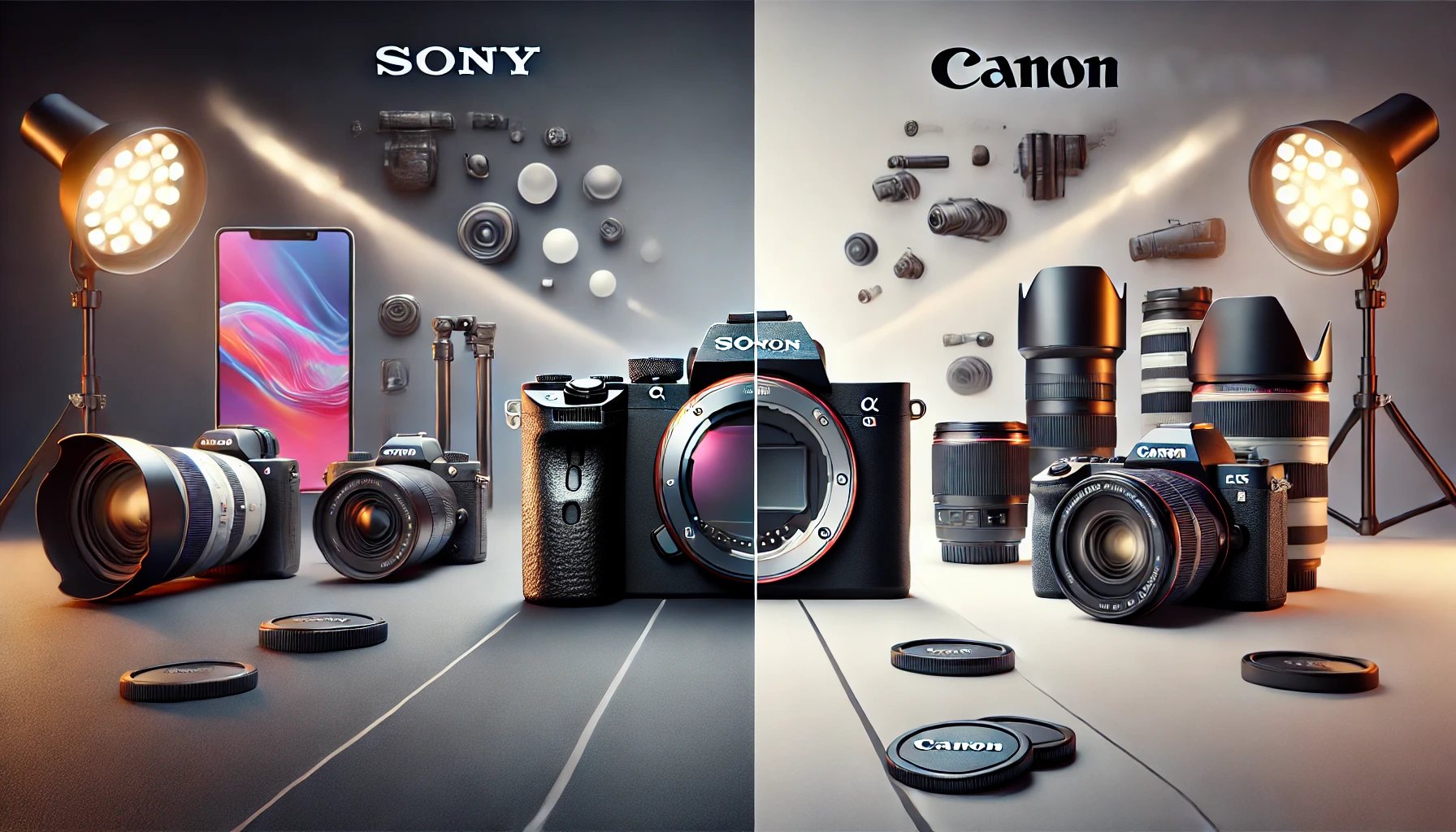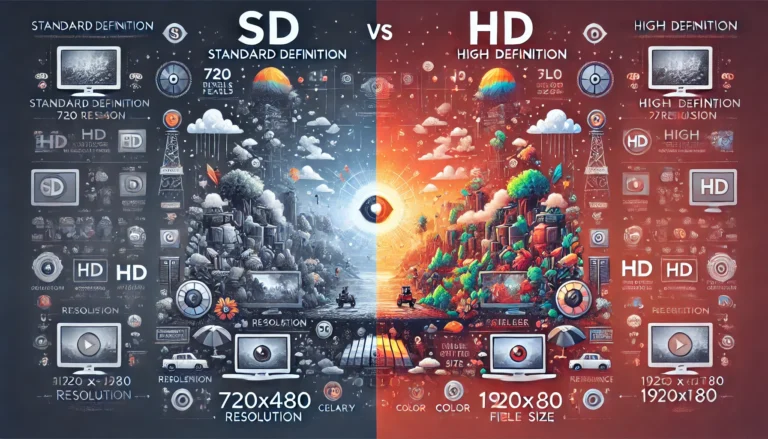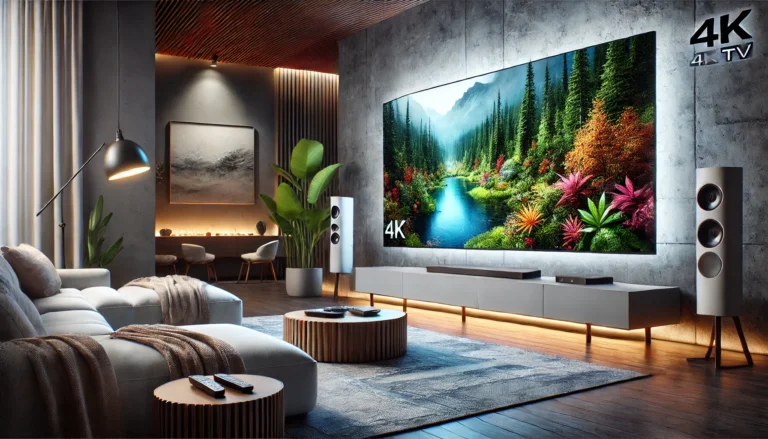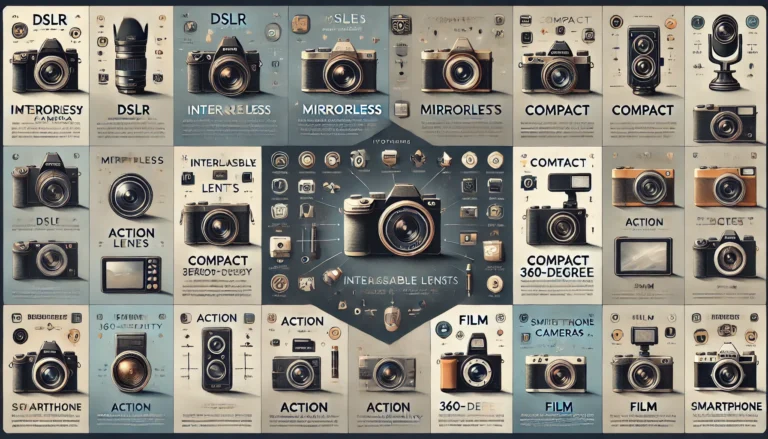Choosing the right camera is crucial for photographers. Sony and Canon are top brands. Photographers often face a tough decision between Sony and Canon. Each brand offers unique features and benefits. Sony is known for its cutting-edge technology and mirrorless systems. Canon, on the other hand, has a long history and loyal following. This comparison helps photographers understand which brand suits their needs best.
Both brands have strengths and weaknesses that cater to different styles and preferences. By exploring their offerings, photographers can make an informed choice. This guide will help you weigh the options and decide which camera brand aligns with your photography goals.
Brand History
When comparing camera brands, understanding their history can help photographers make informed choices. Both Sony and Canon have rich histories that shape their technologies and innovations. This section explores the legacies of these two giants in the photography world.
Sony’s Legacy
Sony entered the camera market with a strong background in electronics. Founded in 1946, Sony started as a small company in Tokyo. Over the years, it grew into a global technology leader. Sony’s innovation in digital imaging began in the 1980s. The first Mavica camera was a groundbreaking step. It used floppy disks for storage, a novel idea back then.
In the 2000s, Sony acquired Konica Minolta’s camera business. This move strengthened their position in the DSLR market. Sony then introduced the Alpha series, which quickly gained popularity. The focus shifted to mirrorless cameras with the launch of the NEX series. Sony’s Alpha 7 and Alpha 9 series set new standards in the industry. Their full-frame mirrorless cameras are now preferred by many professionals.
Canon’s Legacy
Canon’s journey began in 1937. The company started as Precision Optical Instruments Laboratory. Canon introduced its first camera, the Kwanon, in 1934. The Kwanon was Japan’s first 35mm focal-plane shutter camera. Canon continued to innovate, launching the Canonflex in 1959, their first SLR camera. This set the foundation for future successes.
In the 1970s, Canon revolutionized photography with the AE-1. It was the world’s first microprocessor-equipped SLR camera. Canon’s EOS series, launched in 1987, brought autofocus to the mainstream. The EOS series continues to be a favorite among photographers. Canon also pioneered digital SLR cameras, with the EOS D30 in 2000 marking a significant leap. Today, Canon remains a top choice for photographers. Their extensive range of lenses and cameras cater to all levels. From beginners to professionals, Canon offers reliable and innovative products.
Camera Lineup
When choosing between Sony and Canon, the camera lineup is a major factor. Both brands offer a range of models for different types of photographers. This section will compare the camera lineup of Sony and Canon, highlighting their popular models.
Sony Models
Sony has a diverse range of cameras to suit various needs. Below are some of the most popular models:
- Sony Alpha a7 III – Known for its excellent low-light performance and fast autofocus.
- Sony Alpha a6000 – A great entry-level mirrorless camera with impressive image quality.
- Sony RX100 VII – A compact camera perfect for travel, with a powerful zoom lens.
- Sony Alpha a9 – Ideal for sports photography, with high-speed continuous shooting.
Canon Models
Canon’s camera lineup is extensive, catering to all levels of photographers. Here are some key models:
- Canon EOS R5 – Offers high resolution and advanced video capabilities.
- Canon EOS Rebel T7i – A beginner-friendly DSLR with user-friendly features.
- Canon PowerShot G7 X Mark III – A compact camera with excellent video quality, popular among vloggers.
- Canon EOS-1D X Mark III – A professional-grade DSLR, perfect for action and wildlife photography.
|
Feature |
Sony Alpha a7 III |
Canon EOS R5 |
|---|---|---|
|
Sensor |
Full-Frame | Full-Frame |
|
Megapixels |
24.2 MP | 45 MP |
| Video | 4K |
8K |
| Autofocus Points | 693 |
1053 |
Image Quality
When comparing Sony and Canon cameras, image quality is a key factor. Both brands are known for their high-quality images, but they have different strengths. Let’s delve into two critical aspects of image quality: sensor performance and color reproduction.
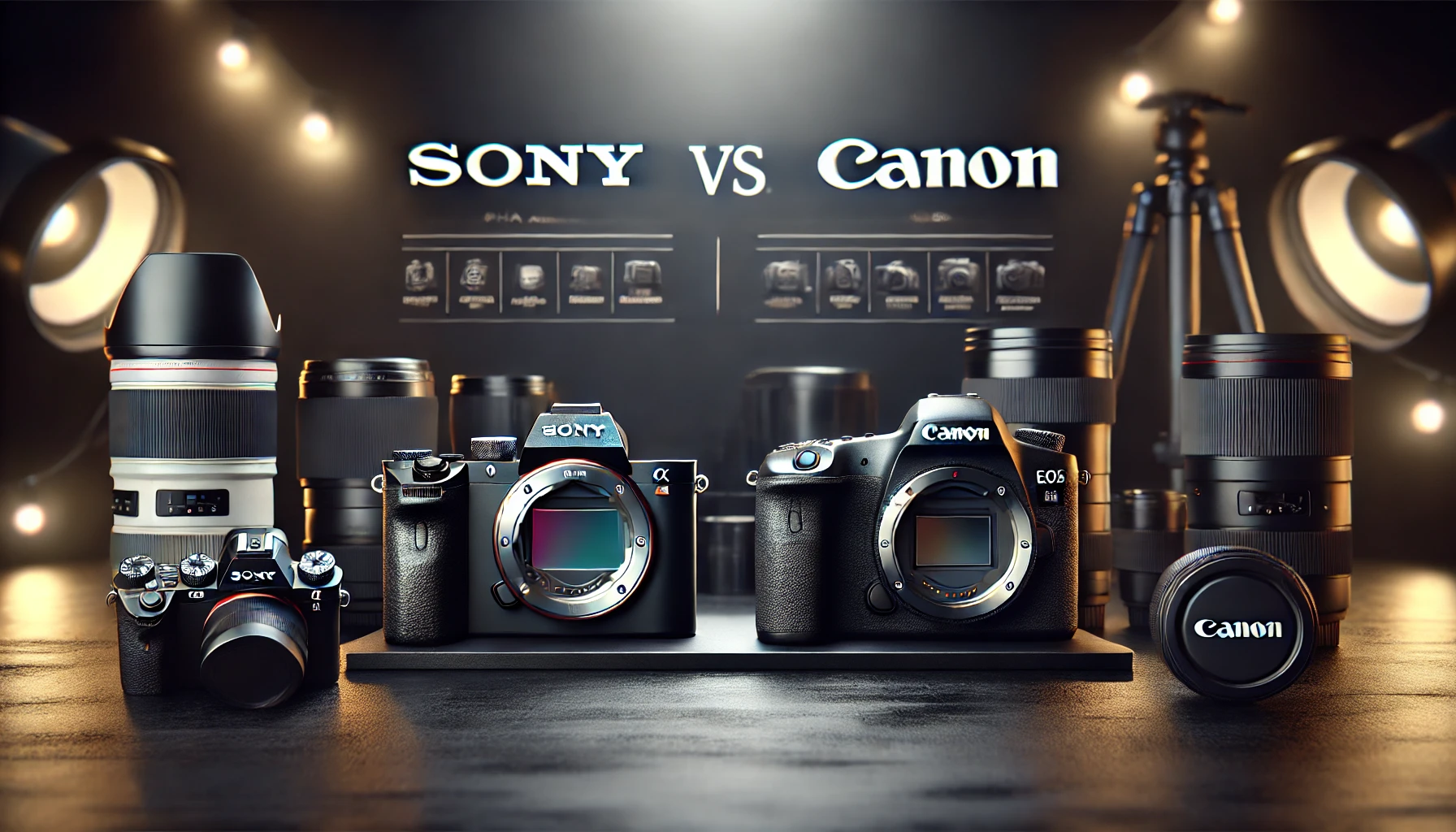
Sensor Performance
The sensor performance of a camera significantly impacts the image quality. Sony is known for its advanced sensor technology. Their sensors often have higher resolution and better low-light performance. This means Sony cameras can capture more detail and perform well in dim conditions.
On the other hand, Canon also has excellent sensors. Canon sensors are praised for their dynamic range. This allows them to capture more details in both bright and dark areas of a photo. Canon’s dual-pixel autofocus technology is another highlight. It provides fast and accurate focusing, enhancing the overall image quality.
Here’s a quick comparison:
|
Brand |
Strength |
|---|---|
|
Sony |
High resolution, low-light performance |
| Canon |
Dynamic range, dual-pixel autofocus |
Color Reproduction
Color reproduction is another crucial aspect of image quality. Sony cameras are known for their vibrant and accurate colors. The colors produced are often true to life, making them great for various photography styles. Canon is also renowned for its color science. Canon cameras produce natural and pleasing colors. This makes them a popular choice among portrait and wedding photographers. The skin tones captured by Canon cameras are especially well-regarded.
To sum up the color reproduction:
- Sony: Vibrant, accurate colors
- Canon: Natural, pleasing colors, excellent skin tones
Autofocus Capabilities
Autofocus is a crucial feature for photographers. It ensures sharp and clear images. Both Sony and Canon offer advanced autofocus systems. Each has its strengths and weaknesses. Let’s compare the autofocus capabilities of Sony and Canon cameras.
Sony Autofocus
Sony’s autofocus system is known for its speed and accuracy. It uses phase detection and contrast detection technologies. This combination helps in quickly locking focus on subjects. One standout feature is the Real-time Eye AF. This technology tracks human and animal eyes. It ensures the subject’s eyes stay sharp in the frame. Here’s a quick look at some key features:
- Real-time Tracking
- High number of focus points
- Excellent in low light conditions
- Fast and accurate focus
Canon Autofocus
Canon’s autofocus system is also highly regarded. It often uses Dual Pixel CMOS AF. This technology provides smooth and precise autofocus. Canon cameras are particularly good for video. The autofocus transitions are smooth and natural. This makes them a favorite among videographers. Here are some notable features:
- Dual Pixel CMOS AF
- Face and Eye Detection
- Good focus point coverage
- Reliable in both photo and video modes
Both Sony and Canon have strong autofocus capabilities. Your choice may depend on your specific needs. Both brands offer reliable and advanced autofocus systems.
Video Recording
Choosing between Sony and Canon for video recording can be tough. Both brands offer excellent features and performance for photographers. Let’s dive into the specific video features of each brand.
Sony Video Features
Sony cameras are known for their advanced video capabilities. Here are some key features:
- 4K Recording: Sony offers high-quality 4K video recording in many models.
- High Frame Rates: Capture smooth slow-motion videos with high frame rates up to 120fps.
- Real-time Eye Autofocus: Keep subjects in sharp focus with Sony’s real-time eye autofocus technology.
- S-Log Profiles: Get more dynamic range and flexibility in post-production with S-Log profiles.
These features make Sony cameras a favorite for video enthusiasts and professionals.
Canon Video Features
Canon also offers impressive video features. Here are some highlights:
- Dual Pixel Autofocus: Achieve smooth and fast autofocus with Canon’s dual pixel technology.
- 4K Recording: Many Canon models support high-quality 4K video recording.
- Canon Log: Enjoy greater dynamic range and flexibility in editing with Canon Log.
- Vari-angle LCD: Get creative with different angles using Canon’s vari-angle LCD screens.
Canon’s video features are excellent for capturing high-quality footage in various settings.
Both Sony and Canon offer a range of features that cater to different video recording needs. Consider these features when choosing the best camera for your video projects.
Usability And Ergonomics
When choosing between Sony and Canon, usability and ergonomics are vital. Photographers need cameras that are easy to handle. Both brands have their strengths. This section will compare their user interface and design.
User Interface
A camera’s user interface is crucial for quick adjustments. Sony cameras often have complex menus. They require more time to learn. Their interface offers more customization options, though. Canon cameras, on the other hand, have simpler menus. They are easier to navigate. Canon’s user interface is intuitive. This makes it friendlier for beginners. Let’s look at some features in a table:
|
Feature |
Sony |
Canon |
|---|---|---|
|
Menu Complexity |
High | Low |
|
Customization |
High | Moderate |
| Ease of Use | Moderate |
High |
Design And Handling
Design and handling affect comfort during long shoots. Sony cameras are known for their compact size. They are lightweight, making them portable. Yet, some find their grip less comfortable. Canon cameras usually have a bulkier design. This provides a better grip. Their weight distribution feels balanced. Many photographers prefer this for stability.
Consider these points:
- Sony: Compact, lightweight, less comfortable grip
- Canon: Bulkier, better grip, balanced weight
Both brands have their pros and cons. Choose based on your needs. If you value a compact design, Sony might be better. If you need comfort and stability, Canon could be the right choice.
Lens Options
Choosing the right camera brand involves considering various factors. One crucial aspect is the lens options available. The versatility and quality of lenses can significantly impact a photographer’s work. Let’s dive into what Sony and Canon offer in this regard.
Sony Lenses
Sony has a reputation for high-quality lenses. They offer a wide range of lenses for different needs.
- E-mount lenses are popular among mirrorless camera users.
- G Master lenses are known for their sharpness and clarity.
Sony provides lenses for all kinds of photography. Be it landscape, portrait, or sports. Their lenses come with advanced features.
|
Lens Type |
Feature |
|---|---|
| Wide-Angle | Great for landscapes |
|
Telephoto |
Ideal for sports |
| Macro |
Perfect for close-ups |
Sony’s lenses are often lighter. This makes them easy to carry for outdoor shoots. Their autofocus system is also fast and reliable.
Canon Lenses
Canon is a well-established brand with a vast lens lineup. They offer both EF and RF mount lenses.
- EF lenses are compatible with DSLRs.
- RF lenses are designed for mirrorless cameras.
Canon lenses are known for their durability. They also offer high-quality optics.
- Prime Lenses: Excellent for portraits.
- Zoom Lenses: Versatile for various situations.
- Specialty Lenses: Such as tilt-shift for architecture.
Canon lenses provide great color accuracy. Their build quality is robust, making them reliable in tough conditions. Both Sony and Canon offer extensive lens options. This allows photographers to choose lenses that best suit their style and needs.
Price And Value
When selecting the right camera, price and value are key factors. Both Sony and Canon have their strengths, but which offers the best bang for your buck? Let’s dive into their pricing and see where you can get the most value.
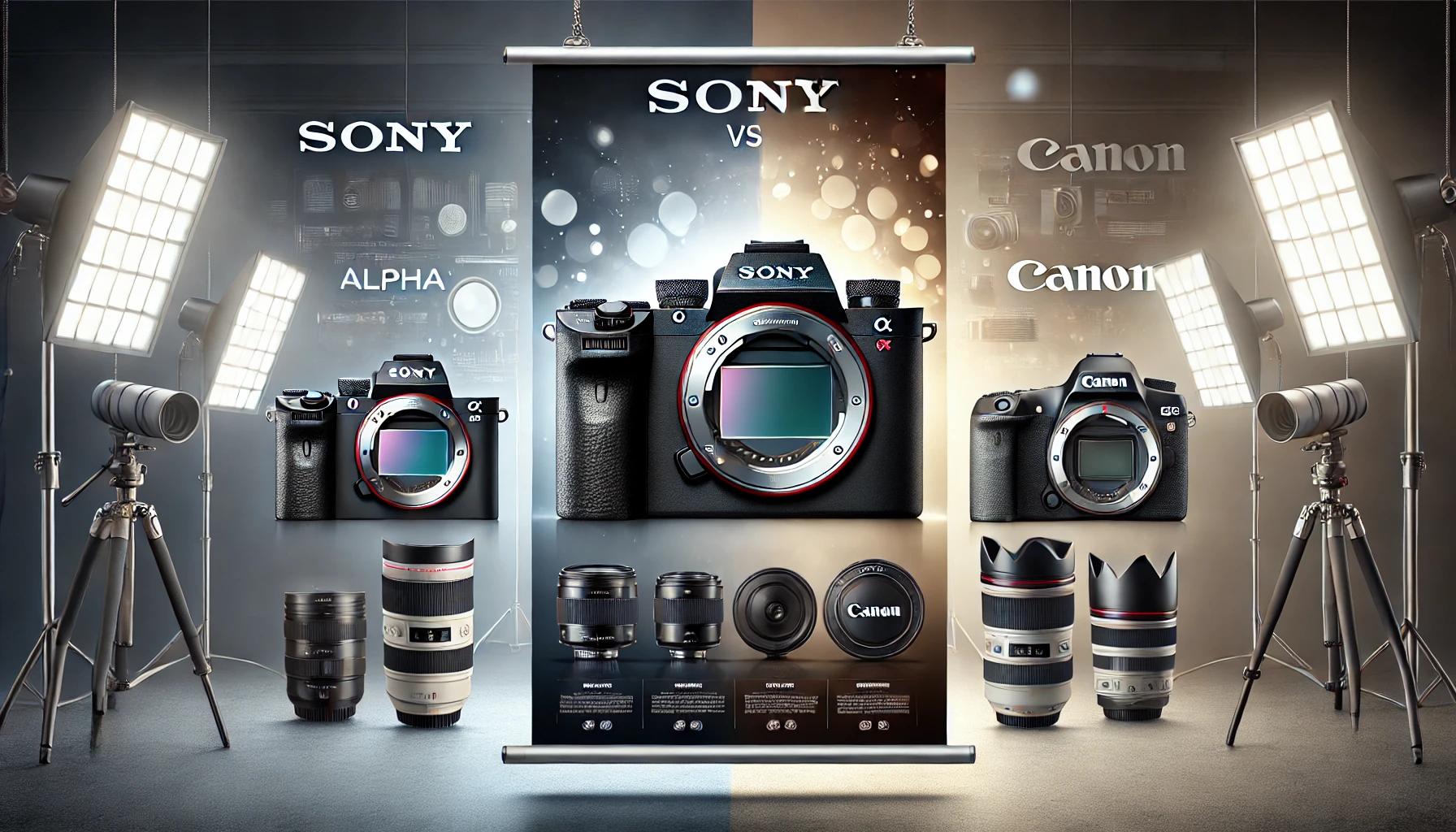
Sony Pricing
Sony cameras are known for their cutting-edge technology. But this often comes with a higher price tag. Below is a table showcasing the prices of some popular Sony models:
| Model | Price |
|---|---|
|
Sony Alpha a7 III |
$1,999 |
|
Sony Alpha a6400 |
$898 |
| Sony RX100 VII |
$1,298 |
Sony’s mirrorless cameras, like the Sony Alpha a7 III, offer excellent image quality. Yet, they can be expensive for beginners. For those on a budget, the Sony Alpha a6400 is a more affordable choice. It still provides great features for its price.
Canon Pricing
Canon offers a wide range of cameras. Their pricing varies to suit different budgets. Here’s a table of some popular Canon models:
| Model | Price |
|---|---|
|
Canon EOS R6 |
$2,499 |
| Canon EOS Rebel T7i |
$749 |
|
Canon PowerShot G7 X Mark III |
$749 |
The Canon EOS R6 offers top-tier performance, but it is pricey. For budget-conscious photographers, the Canon EOS Rebel T7i is a great choice. It provides excellent features without breaking the bank. Both brands cater to different segments of photographers. Your choice will depend on your budget and the features you value most.
Customer Support
Customer support is essential for photographers. It can impact their overall experience with a brand. Both Sony and Canon offer customer support for their products. Let’s dive into the details of each.
Sony Support
Sony provides several customer support options. Online resources like FAQs, manuals, and troubleshooting guides are easily accessible. They also offer live chat and phone support for immediate assistance. Sony’s support team is knowledgeable and responsive. For professional photographers, Sony offers Pro Support. This service includes faster repairs, loaner equipment, and dedicated support. Here is a summary of Sony’s support features:
| Support Option | Details |
|---|---|
|
Online Resources |
FAQs, manuals, troubleshooting guides |
| Live Chat |
Immediate assistance |
|
Phone Support |
Available during business hours |
| Pro Support |
Faster repairs, loaner equipment, dedicated support |
Canon Support
Canon also offers comprehensive customer support. Their online resources include tutorials, product manuals, and a knowledge base. Canon provides live chat and phone support for more personalized help. Canon’s Professional Services (CPS) cater to high-end users. CPS includes priority repairs, equipment loans, and exclusive events. Here is a summary of Canon’s support features:
| Support Option | Details |
|---|---|
|
Online Resources |
Tutorials, product manuals, knowledge base |
| Live Chat |
Real-time assistance |
|
Phone Support |
Available during business hours |
| Professional Services | Priority repairs, equipment loans, exclusive events |
Final Verdict
Choosing between Sony and Canon can be challenging. Both brands offer excellent cameras with unique features. The best choice depends on your needs and experience level.
Best For Professionals
For professionals, Sony often stands out. Their cameras feature advanced technology, including top-notch autofocus and high-resolution sensors. Professionals appreciate the following features:
- Superior Autofocus: Sony’s autofocus is known for its speed and accuracy.
- 4K Video Recording: Ideal for professional videography.
- High Dynamic Range: Captures more detail in shadows and highlights.
In addition, Sony offers a wide range of lenses and accessories tailored to professional needs.
Best For Beginners
For beginners, Canon is often the better choice. Their cameras are user-friendly with intuitive controls and guided menus. Here are some key benefits:
- Ease of Use: Canon’s interface is simpler for new users.
- Affordable Options: Many Canon cameras are budget-friendly.
- Great Learning Resources: Canon provides extensive tutorials and support.
Canon also offers entry-level cameras with features that help beginners learn and grow.
| Feature | Sony | Canon |
|---|---|---|
|
Autofocus |
Advanced | Good |
| Video Quality | 4K |
Full HD |
|
Ease of Use |
Moderate | High |
| Price Range | High |
Low to High |
|
Lens Selection |
Wide |
Extensive |
Both Sony and Canon have their strengths. Your choice should align with your photography needs and experience level.
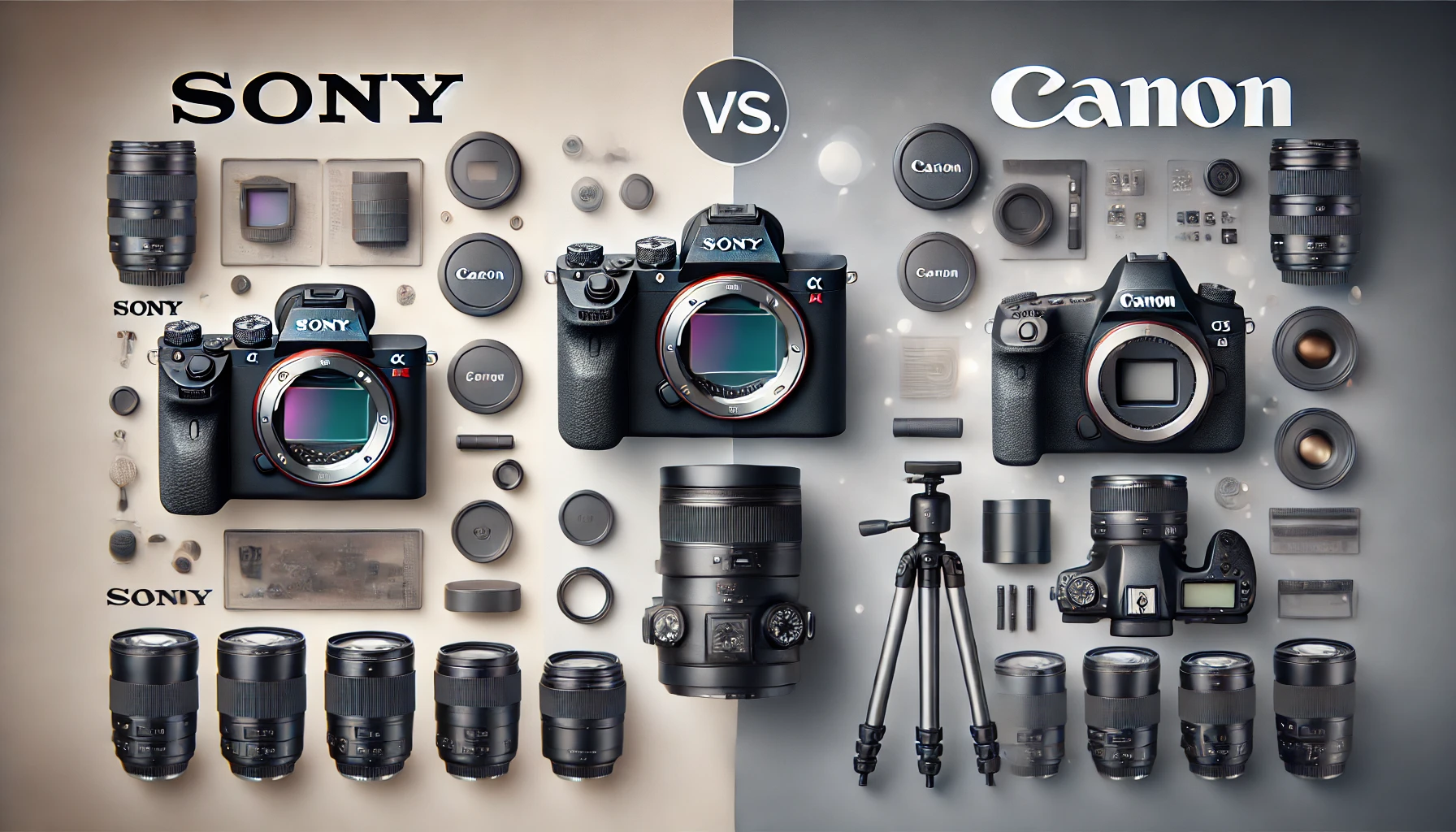
Conclusion
Choosing between Sony and Canon depends on your needs. Both brands offer excellent cameras. Sony excels in innovation and technology. Canon is known for reliability and lens variety. Think about your budget and preferences. Are you into video or still photography?
Consider ergonomics and user interface too. Visit a store to try both brands. The right choice enhances your photography journey. Enjoy capturing those special moments!


